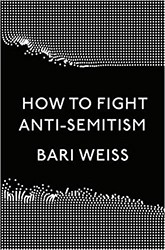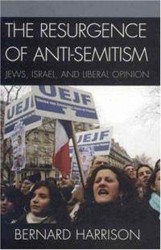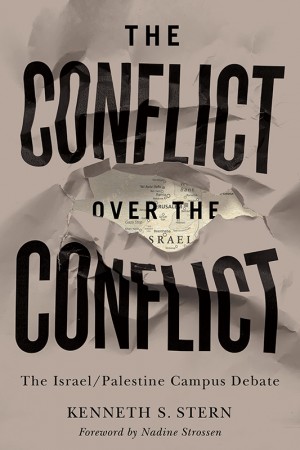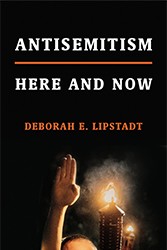Susie Linfield’s provocative book begins with a personal anecdote. At a dinner party with friends, who she describes as fellow progressives, she is shocked and pained to hear them dismiss a mutual acquaintance as a “Zionist” — an epithet spoken with disdain. She meekly admits to the group that she too is a Zionist, a response met with stunned silence and an embarrassed clearing of throats. How, she asks, did Zionism, once the darling of progressives, become the consummate international villain, and Israel the pariah nation in leftist circles? How did the Left become supporters of terrorists and Islamists who seek the destruction of Israel? Her exploration takes the reader back to the writings of eight major historical figures of the left: Hannah Arendt, Arthur Koestler, Maxime Rodinson, Isaac Deutscher, Albert Memmi, Fred Halliday, I. F. Stone, and Noam Chomsky. Their ideas, if they have not directly shaped the thinking of contemporary leftists, provide a foreshadowing (in the case of six of the eight, with Memmi and Halliday as the exceptions) of much contemporary anti-Zionist and anti-Israel rhetoric.
A professor of cultural journalism at New York University and author of a previous book on leftist photographers and the depiction of political violence, Linfield approaches her task with a personal stake in the debate over Israel; nonetheless she treats each of her major figures with critical dispassion. She faults them for their lapses in logic and their blinkered thinking, but gives them credit for ideas she finds prescient. Even Noam Chomsky, of whom she is most critical, gets points for his stance against BDS and his rejection of the “one-state” solution (although his “two-state” solution is idiosyncratic, she says). She highlights the personal trajectories of each of her subjects and places them in the context of their times and milieux. Her concluding chapter draws some lines from her analyses to more contemporary figures in the anti-Israel campaign.
The picture that emerges from the book is not an easy one to summarize. Most of Linfield’s subjects tacked and veered in their ideas about Zionism, often moving from being staunch supporters of the Zionist movement to harsh critics. Arendt, for example, joined the Zionist movement in Germany after Hitler came to power, but became an opponent of Israel even before it became a state. Koestler supported the militant wing of Zionism led by Ze’ev Jabotinsky but hated the Jews of the new state as much as he despised those of the Europe in which he grew up, and ultimately hoped that Jewish identity would vanish. I. F. Stone, the avatar of independent critical journalism in the 1950s and 1960s, was an ardent Zionist in in the 1940s and 50s, but became a fierce critic of Israel following the 1967 Six-Day War. Chomsky followed a similar trajectory to emerge as one of Israel’s staunchest (Jewish) critics, a role he still plays even in his early 90s.
Many of Linfield’s subjects opposed Zionism on ideological grounds; socialists and Marxists opposed any form of nationalism, seeking a transnational future in which the solidarity of the working class would replace national identities and, in the case of the Jews, eliminate the scourge of antisemitism. Others opposed Zionism as an expression of their discomfort with being Jews. Isaac Deutscher, the Polish-born biographer of Communist leader Leon Trotsky, coined the phrase “non-Jewish Jews” to define this trait. Others found the evolution of Zionism (or more precisely the evolution of Israeli policy following the Six-Day War) troubling and cast Israel as the aggressor, a stalking horse for a neo-imperialism of the West against the legitimate rights of the Palestinian people. Stone and Chomsky are in this category as are a good number of their younger acolytes on the left. Halliday emerges as a contrasting figure. An Irish-born left-wing journalist-turned-academic, he began his career as an outspoken defender of Palestinian nationhood but came to recognize that the two-state solution was the only realistic outcome to the intractable conflict, a stance that led to his being shunned by many on the left. Only Albert Memmi, born in Tunisia and a passionate advocate for the anti-colonial movement that swept over North Africa in the post-World War II decade, emerges in Linfield’s account as a leftist who managed to maintain his Zionist identity.
Linfield’s well-documented study is required reading for anyone concerned with arguments over the future of Israel and Palestine, so much in the news recently as the issue has become highly charged in US politics. Although one might wish that Linfield had engaged with more contemporary figures on the left, she provides a necessary historical grounding for evaluating contemporary debates. While her division of subjects into “Europeans,” “Socialists,” and “Americans” is not particularly consistent or helpful (most of the “Socialists” are “Europeans”; the countries of origin seem to have little bearing on their stance toward Zionism), and while her choice of subjects can be second-guessed (was Arthur Koestler’s thinking about Zionism largely influential?) she is spot on in critiquing the contradictions in the views of Zionist theory and practice by many on the left and in highlighting how much of the debate “is founded on false historical claims and assertions” and in cautioning against “the dangers of fantasy, symbol, metaphor, and theory” that can overtake “reality and history.” It is perhaps, alas, symptomatic of the intractability of the Israel-Palestine question that this is as true on the pro-Zionist and well as the anti-Zionist side.





